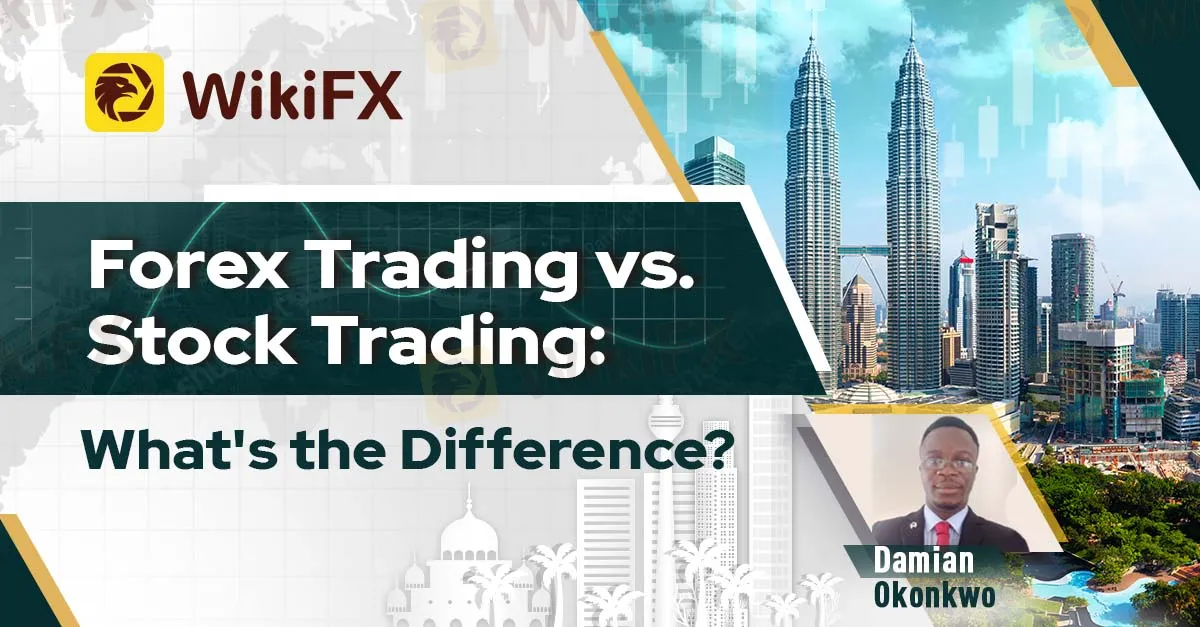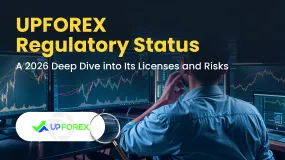Abstract:The forex market is less regulated compared to the stock exchange market. This can be appealing to some traders who prefer a more hands-off approach. However, it also means that there are fewer safeguards in place to protect investors from fraud and manipulation.

By: Damian Okonkwo

Introduction
For many aspiring investors, the world of financial markets can seem daunting and complex. Deciding where to put your hard-earned money can be a daunting task, especially when faced with seemingly endless options. Two popular avenues are forex trading and stock trading, each with their own unique characteristics and demands. Understanding the key differences between these two markets is crucial for making informed investment decisions.
Understanding the Major differences between Forex and Stock Trading
There are some underlying differences between Forex trading and stock trading. These differences have been highlighted below:
A) The Underlying Assets
The most fundamental difference lies in the underlying asset being traded. In forex trading, you are buying and selling currencies, speculating on their relative value against each other. For instance, if you supposed that the Euro will strengthen against the US Dollar. Then you would have to be buying Euros using Dollars, hoping to sell them later at a higher price when the Euro appreciates.
Conversely, in stock trading, you are buying and selling shares of ownership in companies. These shares represent a claim to the company's future profits and assets. By buying a share of Apple, for example, you are essentially becoming a part-owner of the company, hoping its value will increase over time.
B) Market Size and Liquidity
The forex market dwarfs the stock market in terms of sheer size. With a daily trading volume exceeding $6 trillion, the forex market is the most liquid financial market in the world. This means there are always buyers and sellers willing to trade, making it easy to execute your trades quickly and efficiently.
In contrast, the stock market, while still large, has a significantly lower daily trading volume. This can sometimes lead to difficulty in executing trades, especially for smaller, less liquid stocks.
C) Trading Hours
Another key difference is the trading hours. The forex market is open 24 hours a day, 5 days a week, following the sun across different time zones. This allows traders to take advantage of global economic events and news at any time.
On the other hand, the stock market typically operates during regular business hours, with specific opening and closing times depending on the exchange. This limits the flexibility of traders and can make it difficult to react to breaking news.
D) Commissions and Spreads
Forex trading typically involves lower commissions and spreads compared to stock trading. This is because forex brokers often rely on the bid-ask spread to generate their profits, rather than charging explicit commissions. The bid-ask spread is the difference between the price at which you can buy a currency pair and the price at which you can sell it. While forex spreads can be tight, especially for major currency pairs, they can still be significant for less liquid pairs.
Stock trading, on the other hand, often involves explicit commissions charged by the broker, in addition to bid-ask spreads. These commissions can vary depending on the broker and the type of order being placed.
E) Volatility and Leverage
The forex market is by far more volatile when compared to the stock market. This means that currency prices can fluctuate significantly in a short period of time. This can create opportunities for substantial profits, but also increases the potential for losses. Additionally, forex brokers often offer high leverage, allowing traders to control a larger position with a smaller initial investment. While this can amplify potential gains, it can also lead to significant losses if the trade moves against you.
Stock trading typically involves less leverage, making it a potentially safer option for risk-averse investors.
F) Regulation
The forex market is less regulated compared to the stock exchange market. This can be appealing to some traders who prefer a more hands-off approach. However, it also means that there are fewer safeguards in place to protect investors from fraud and manipulation.
Stock trading, on the other hand, is heavily regulated by government agencies like the Securities and Exchange Commission (SEC). This provides investors with a higher level of protection but can also lead to more complex and bureaucratic processes.
Choosing Your Path in the Market
Ultimately, the best market for you depends on your individual risk tolerance, investment goals, and trading style. Forex trading is a fast-paced and dynamic market that offers the potential for high returns, but also carries significant risks. Stock trading, on the other hand, can be a more stable and predictable option, but may offer lower potential returns. Carefully consider your individual circumstances and conduct thorough research before venturing into either market.











